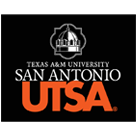Document Types
Individual Presentation
Start Date
2-24-2024 3:40 PM
End Date
2-24-2024 4:00 PM
Track
Culture and Pedagogy
Abstract
In the last decade, prominent scholars (Beaudrie & Loza, 2021; Leeman & Serafini, 2016; Martinez, 2016; Parra, 2016) have called for the adoption of critical language awareness (CLA) as a primary framework for carrying out Spanish heritage language (SHL) instructional goals. Thus, research on preparing SHL instructors for critical teaching continues to necessitate the opinions and advice of current practitioners engaging in CLA efforts. This presentation hopes to contribute to this research by honing into the recommendations of five educators working in a well-established SHL program at a U.S. Southwest university. Drawing from my dissertation, I employed qualitative semi-structured interviews with purposely sampled participants. Using a culturally sustaining pedagogy (CSP) (Paris, 2012; 2021; Paris & Alim, 2017; Paris, Alim & Wong, 2020) theoretical framework, I explored the participants’ views on the profiles of potential SHL instructors, the roles of SHL program teams in instructor development, and the aspects that facilitate and constrain instructor preparation. Findings highlighted the dire need for 1) ideological alignment among SHL program stakeholders prior to engaging with CLA-based efforts and 2) tenure-track faculty and SHL/CLA specialists in language departments/programs. This presentation will inspire attendees to question further and discuss if and how ideological alignment can be achieved. Moreover, attendees will appraise why such alignment is a necessary precursor to new SHL instructor training.
Recommended Citation
Yocupicio, Gabrielle, "What would it take to prepare critical Spanish heritage language (SHL) instructors?" (2024). 11th National Symposium on Spanish as a Heritage Language. 13.
https://digitalcommons.tamusa.edu/heritage_spanish/SCHEDULE/Saturday/13
Included in
Digital Humanities Commons, Feminist, Gender, and Sexuality Studies Commons, Language Interpretation and Translation Commons, Latin American Languages and Societies Commons, Spanish and Portuguese Language and Literature Commons
What would it take to prepare critical Spanish heritage language (SHL) instructors?
In the last decade, prominent scholars (Beaudrie & Loza, 2021; Leeman & Serafini, 2016; Martinez, 2016; Parra, 2016) have called for the adoption of critical language awareness (CLA) as a primary framework for carrying out Spanish heritage language (SHL) instructional goals. Thus, research on preparing SHL instructors for critical teaching continues to necessitate the opinions and advice of current practitioners engaging in CLA efforts. This presentation hopes to contribute to this research by honing into the recommendations of five educators working in a well-established SHL program at a U.S. Southwest university. Drawing from my dissertation, I employed qualitative semi-structured interviews with purposely sampled participants. Using a culturally sustaining pedagogy (CSP) (Paris, 2012; 2021; Paris & Alim, 2017; Paris, Alim & Wong, 2020) theoretical framework, I explored the participants’ views on the profiles of potential SHL instructors, the roles of SHL program teams in instructor development, and the aspects that facilitate and constrain instructor preparation. Findings highlighted the dire need for 1) ideological alignment among SHL program stakeholders prior to engaging with CLA-based efforts and 2) tenure-track faculty and SHL/CLA specialists in language departments/programs. This presentation will inspire attendees to question further and discuss if and how ideological alignment can be achieved. Moreover, attendees will appraise why such alignment is a necessary precursor to new SHL instructor training.

